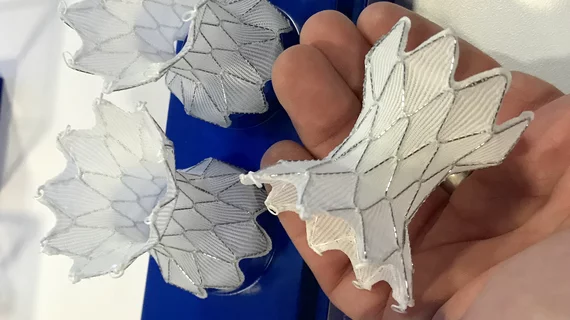Medtronic relaunches Harmony TPV system after 2022 recall
Medtronic is officially relaunching its Harmony Transcatheter Pulmonary Valve (TPV) system after durability issues led to a voluntary recall in 2022.
The device was approved by the U.S. Food and Drug Administration (FDA) in 2021 to treat a leaky native or surgically repaired right ventricular outflow tract (RVOT) in pediatric and adult patients with severe pulmonary valve regurgitation.
“The Harmony TPV provides a new treatment option for adult and pediatric patients with certain types of congenital heart disease,” Bram Zuckerman, MD, director of the Office of Cardiovascular Devices in the FDA’s Center for Devices and Radiological Health, said at the time in an FDA statement. “It offers a less-invasive treatment alternative to open-heart surgery to patients with a leaky native or surgically repaired RVOT and may help patients improve their quality of life and return to their normal activities more quickly, thus fulfilling an unmet clinical need of many patients with congenital heart disease.”
The company received six complaints related to its delivery catheter breaking off during use, leading to the voluntary recall of 665 devices distributed from April 2021 to January 2022. Medtronic requested that all unused Harmony TPV devices be immediately returned.
Now, after working with the FDA to address the issue, the company is once again offering the Harmony device throughout the United States.
“The relaunch of Harmony TPV underscores our continued commitment to advancing solutions for all people who experience heart disease, and we are proud to be driving innovation forward by offering the first non-surgical solution designed for congenital heart disease patients with severe pulmonary valve regurgitation,” Nina Goodheart, president of Medtronic’s structural heart & aortic business, said in a prepared statement.

